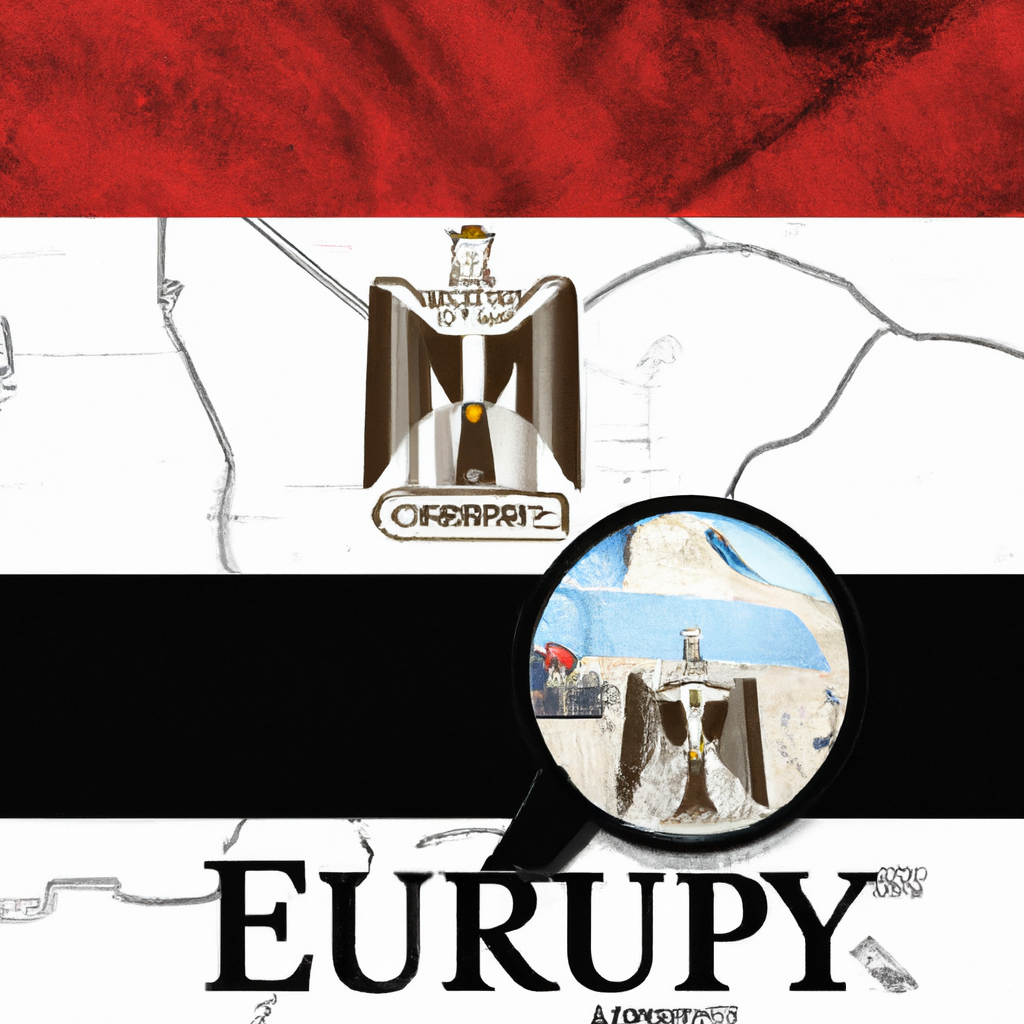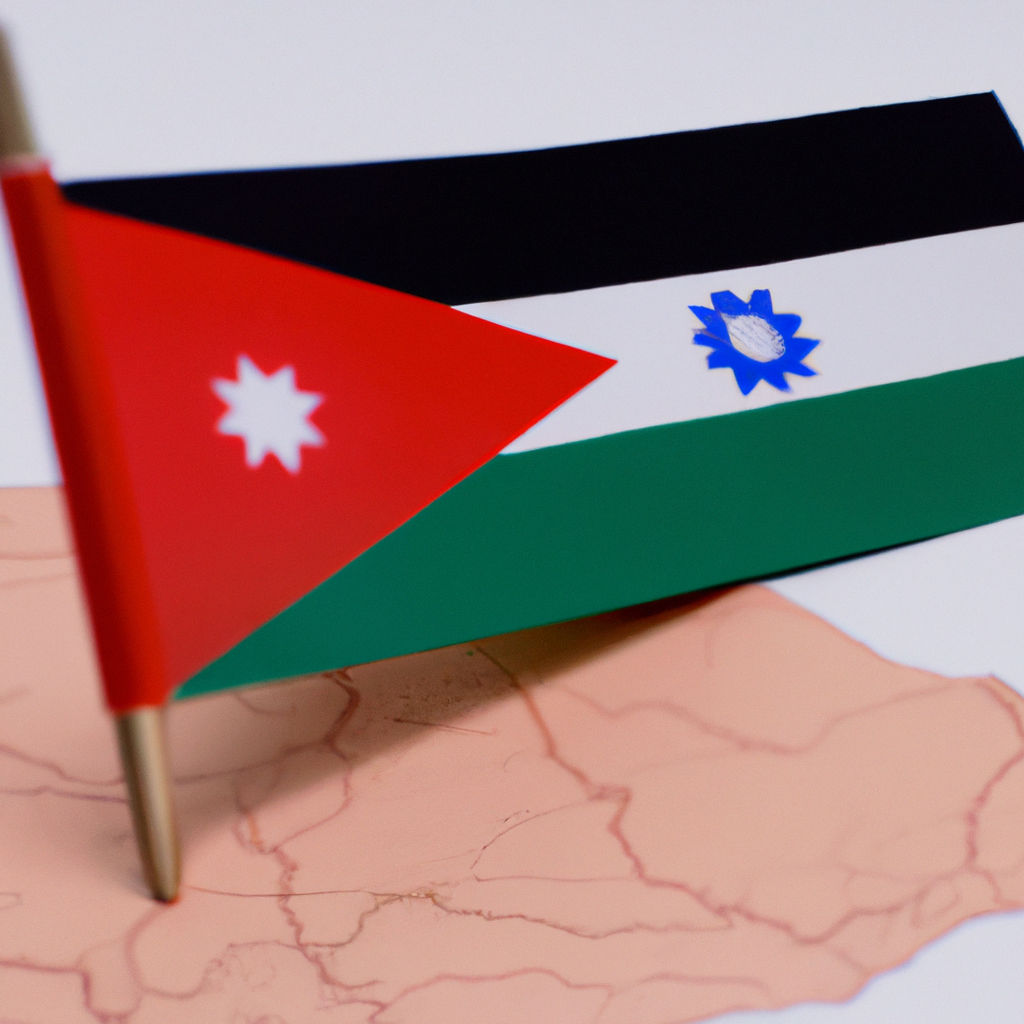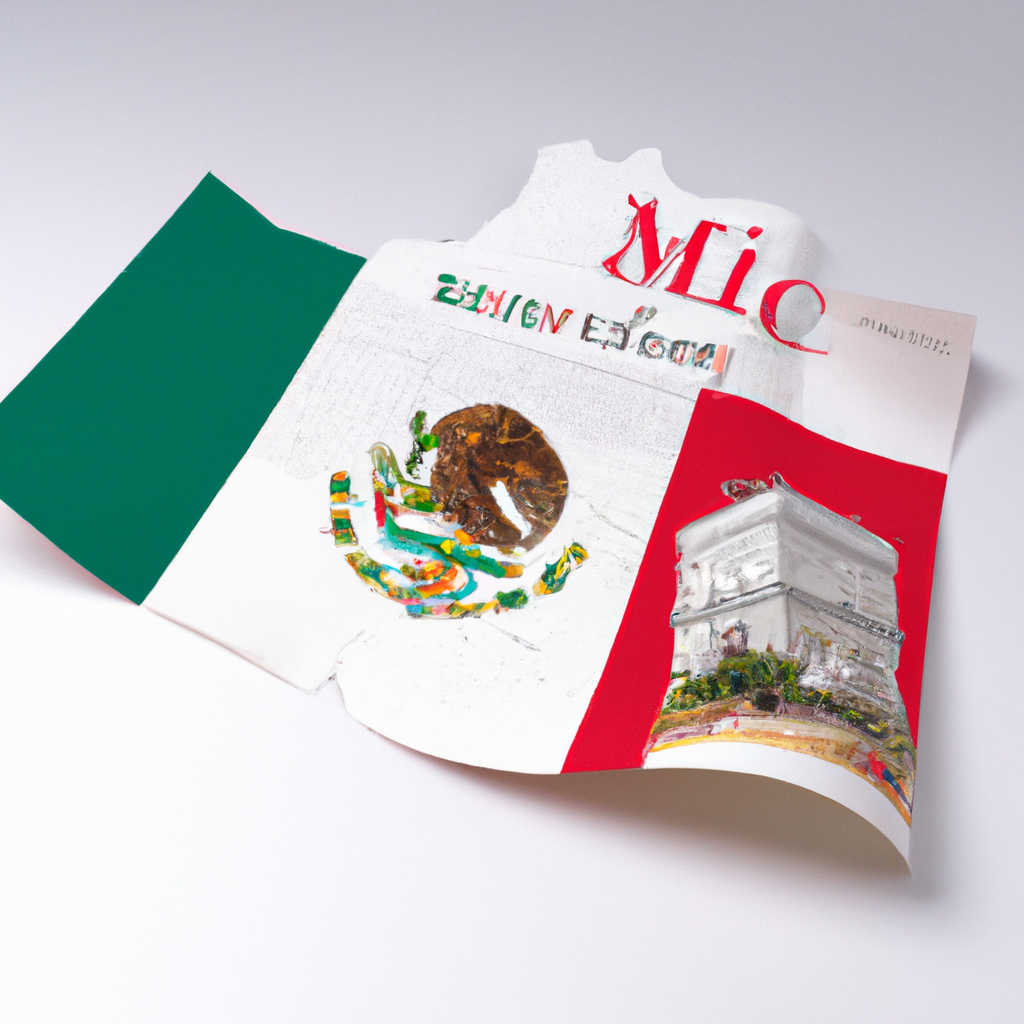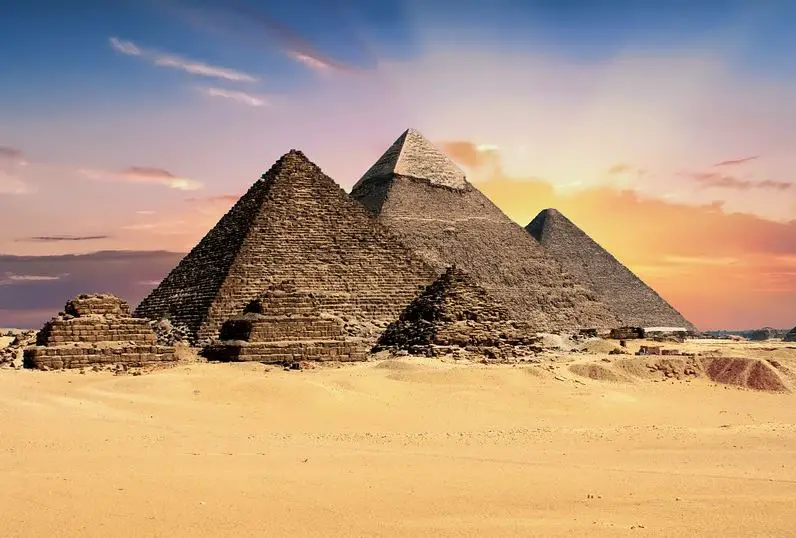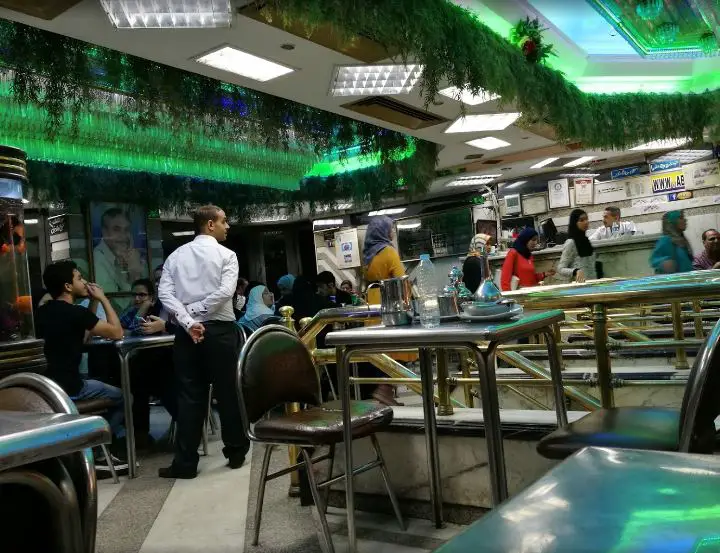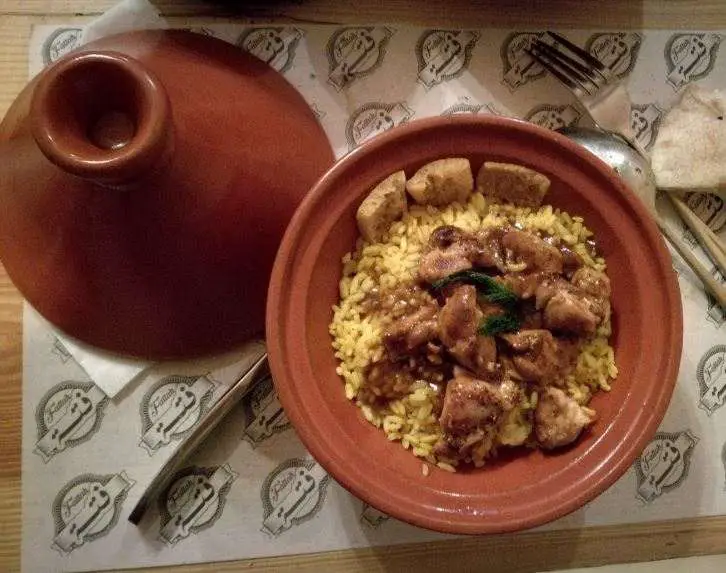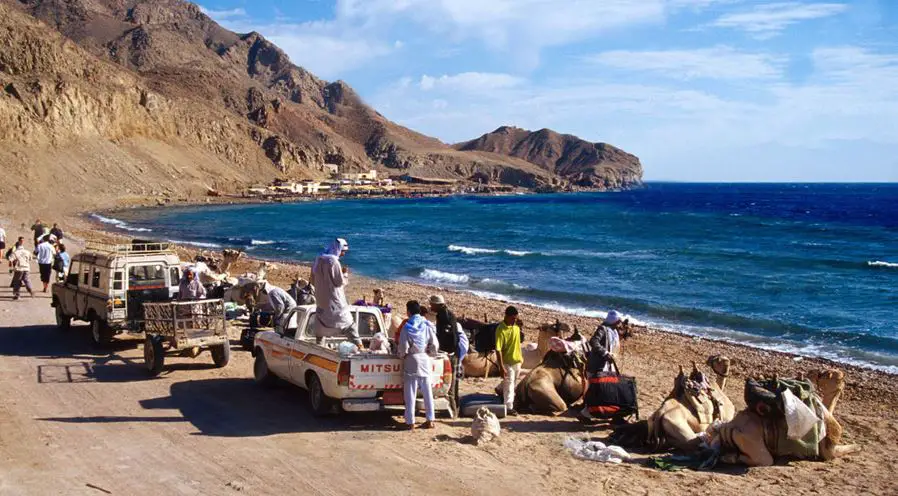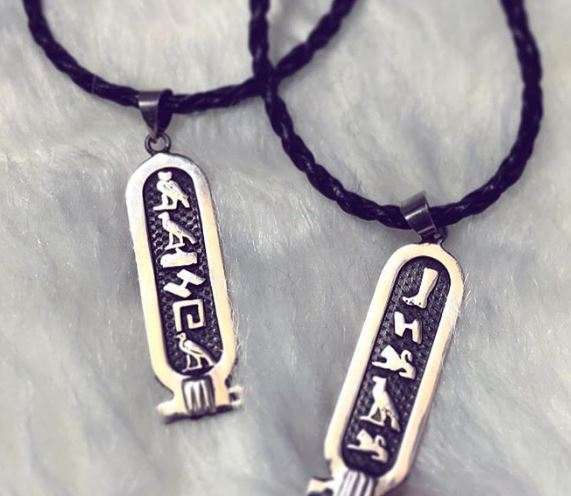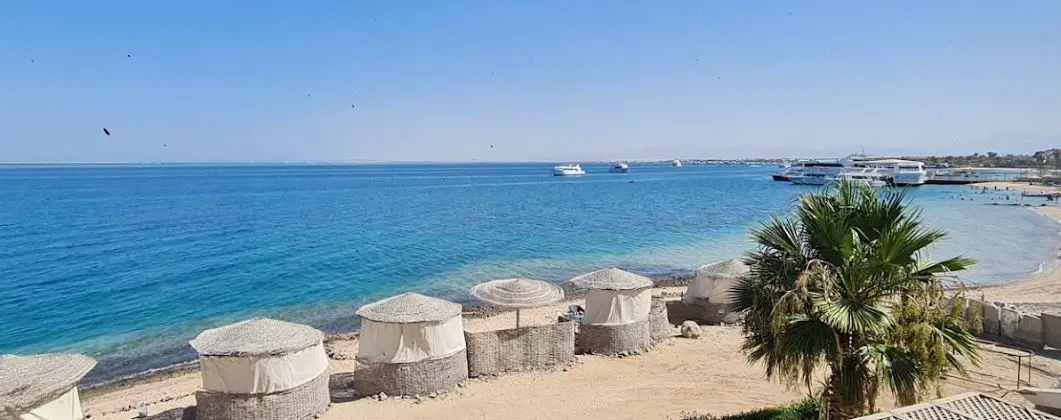Luxor, Egypt: Interesting Facts,History, Things to do,Why to Visit
Post ByAdequate Travel
Are you looking for an interesting and unique holiday destination full of culture, history, and adventure? Then you should consider Luxor, Egypt. Located along the banks of the Nile River and in the beautiful, sun-drenched region of Upper Egypt, you can find the grand Temple of Karnak and other fascinating places to explore. Luxor is known for its amazing archaeological sites, numerous monuments, and fascinating history. There is something for everyone from unique shopping experiences to historical tours. Whether you're looking to sightsee or just relax, Luxor has many attractions that offer unforgettable experiences. You will never forget the brilliant sunrises and sunsets, and the beautiful mountain views! There are so many fascinating reasons to visit Luxor, Egypt.
Egypt is a country located in North Africa, bordered by the Mediterranean Sea to the north and the Red Sea to the east. It is home to one of the world's oldest civilizations, known for its iconic pharaohs, pyramids, and ancient temples. In modern times, Egypt is a predominantly Muslim country with a rich cultural heritage and vibrant tourism industry. The country has faced political instability in recent years, with protests and a revolution leading to the ousting of President Hosni Mubarak in 2011. Since then, Egypt has undergone multiple political transitions, including the election of its first civilian president, Mohamed Morsi, followed by a military coup and the current rule of President Abdel Fattah el-Sisi. The economy relies on sectors such as tourism, agriculture, and natural gas production, but faces challenges such as high unemployment, poverty, and political unrest.Discover the untold stories behind egypt unique facts, and historical treasures.
Interesting facts
Historical Landmarks
- Egypt is home to the Great Pyramid of Giza, one of the Seven Wonders of the Ancient World. This massive structure, built during the reign of Pharaoh Khufu, stands as a testament to the architectural and engineering achievements of the ancient Egyptians.
- The Temple of Karnak, located in Luxor, is the largest religious building ever constructed. It was dedicated to the worship of Amun-Ra, the king of the gods in ancient Egypt. The complex covers an area of over 247 acres and is an impressive example of ancient Egyptian temple architecture.
- The Valley of the Kings, situated on the west bank of the Nile near Luxor, is a burial ground for many pharaohs of the New Kingdom period. It contains numerous tombs, including the famous tomb of Tutankhamun, discovered in 1922 by archaeologist Howard Carter.
Cultural Heritage
- Ancient Egyptian civilization dates back over 5,000 years. The country's rich cultural heritage can be seen in its art, literature, and religious beliefs. Ancient Egyptian architecture, with its intricate hieroglyphics and impressive structures, continues to inspire awe and fascination.
- Hieroglyphics, the ancient Egyptian writing system, are one of the world's oldest recorded written languages. They were used on temple walls, tombs, and papyrus scrolls to convey stories, record historical events, and communicate religious beliefs.
- Egyptian mythology is filled with fascinating gods and goddesses, such as Ra, Osiris, Isis, and Horus. These deities played significant roles in the religious practices and beliefs of ancient Egyptians, shaping their worldview and influencing their daily lives.
Natural Wonders
- The Nile River, the longest river in Africa and the world, runs through Egypt and has played a crucial role in the country's history and development. It provided fertile soil for agriculture, facilitated transportation and trade, and was a source of freshwater for ancient Egyptian civilization.
- The Sahara Desert covers a large portion of Egypt's land area. This vast desert landscape is not only home to unique flora and fauna but also contains remarkable geological formations, such as the White Desert and the Great Sand Sea.
- The Red Sea, located along Egypt's eastern coastline, is renowned for its stunning coral reefs and diverse marine life. It offers excellent opportunities for snorkeling, diving, and beach activities, attracting tourists from around the world.
From museums to parks,egypt tourist attractions offer something for everyone, making it a versatile destination for all type of tourists.History of Egypt
Egypt is an ancient civilization that dates back to approximately 3100 BCE. The country has a rich history with numerous dynasties and kingdoms that have left a lasting impact on its culture, architecture, religion, and governance. Here is a summary of key points in Egyptian history:
1. Early Dynastic Period (3100-2686 BCE)
During this period, Egypt was unified under a single ruler known as the pharaoh. The capital city was established in Memphis, and monumental structures like the Step Pyramid of Djoser were constructed. The development of hieroglyphic writing and the emergence of the powerful bureaucracy were notable advancements in this era.
2. Old Kingdom (2686-2181 BCE)
The Old Kingdom saw the construction of the iconic pyramids at Giza, including the Great Pyramid of Khufu. The pharaohs held immense power, and the society was highly structured. The sun god Ra gained prominence during this period, and religion played a crucial role in daily life.
3. First Intermediate Period (2181-2055 BCE)
This period marked a time of political turmoil and decentralization. The central government lost control, and regional governors gained prominence. Economy suffered, and the country saw an increase in social unrest. Foreign invasions and conflicts further destabilized Egypt.
4. Middle Kingdom (2055-1650 BCE)
The Middle Kingdom began with the reunification of Egypt under the rule of Mentuhotep II. Stability and prosperity were restored, and the pharaohs focused on building infrastructure, like canals and irrigation systems. This era witnessed the rise of new deities such as Amun, and the concept of the afterlife gained importance.
5. Second Intermediate Period (1650-1550 BCE)
During this period, Egypt faced invasions from the Hyksos, a group from the eastern Mediterranean. The Hyksos ruled over parts of Egypt and introduced new military technologies like the horse-drawn chariot. However, the Egyptian nobility eventually expelled the Hyksos and regained control of the kingdom.
6. New Kingdom (1550-1077 BCE)
The New Kingdom is considered Egypt's most prosperous and powerful period. It witnessed the reign of famous pharaohs like Hatshepsut, Thutmose III, Akhenaten, and Tutankhamun. Egypt expanded its empire, engaged in trade, and built extravagant temples and tombs. This era also witnessed the height of the worship of the god Amun-Ra.
7. Third Intermediate Period (1077-664 BCE)
This era was characterized by political instability and division. Egypt experienced rule by various competing dynasties and foreign invasions by Libyans, Nubians, and Assyrians. The power of the pharaoh declined, and local rulers asserted more control.
8. Late Period (664-332 BCE)
The Late Period began with the Twenty-sixth Dynasty and the restoration of centralized power. Egypt faced Persian invasions, and later, the country fell under the control of Alexander the Great and the Macedonian dynasty. The influence of Greek and Hellenistic cultures increased during this time.
9. Ptolemaic Period (332-30 BCE)
After Alexander the Great's death, Egypt became a part of the Hellenistic Empire ruled by the Ptolemaic dynasty. The most famous Ptolemaic ruler was Cleopatra VII, who had a significant impact on the political landscape of the ancient world. Eventually, with the defeat of Cleopatra, Egypt fell under Roman control.
10. Roman Period (30 BCE - 641 CE)
The Roman period brought major changes to Egypt. The country became a Roman province, and Christianity began to spread. Egypt saw the construction of temples dedicated to Roman emperors, such as the Temple of Philae. The Romans heavily influenced the art, architecture, and governance of Egypt.
Throughout its history, Egypt has experienced periods of great splendor and prosperity as well as periods of decline and foreign rule. The ancient civilization's achievements, such as the construction of colossal monuments and the development of a sophisticated writing system, continue to captivate the world today.
Exploring the rich heritage of historical sites in egypt is a journey through time and culture.Famous Things of Egypt
1. Pyramids of Giza: The Pyramids of Giza are one of the most iconic landmarks in Egypt and the last surviving Seven Wonders of the Ancient World. These ancient structures were built as tombs for the pharaohs during the Old Kingdom period. The three main pyramids are the Great Pyramid of Khufu, the Pyramid of Khafre, and the Pyramid of Menkaure.
2. Sphinx: Located in Giza, the Sphinx is a mythical creature with the body of a lion and the head of a human or animal. It is believed to be a representation of the pharaoh Khafre and is considered a symbol of strength and power in Egyptian culture.
3. Luxor Temple: The Luxor Temple is an ancient temple complex located on the east bank of the Nile in Luxor. It was built in the 14th century BC and served as a center for religious worship dedicated to the god Amun. The temple is famous for its colossal statues, obelisks, and intricate hieroglyphic inscriptions.
4. Valley of the Kings: The Valley of the Kings is a burial ground for many pharaohs and nobles of the New Kingdom period. Located on the west bank of the Nile near Luxor, it is known for its well-preserved tombs and elaborate wall paintings that depict scenes from ancient Egyptian mythology and daily life.
5. Abu Simbel: Abu Simbel is a temple complex located in southern Egypt. It was built by Pharaoh Ramesses II and consists of two massive rock temples carved into a mountainside. The temples are famous for their colossal statues and intricate architectural details.
6. Egyptian Museum: The Egyptian Museum in Cairo is home to a vast collection of ancient Egyptian artifacts, including the treasures of Tutankhamun. It houses statues, jewelry, mummies, and other archaeological treasures that provide insights into the rich history and culture of Egypt.
7. Nile River: The Nile River is the longest river in Africa and is considered the lifeblood of Egypt. It has played a significant role in the development of ancient Egyptian civilization, providing water, transportation, and fertile soil for agriculture.
8. Karnak Temple Complex: The Karnak Temple Complex is a vast temple complex dedicated to the gods Amun, Mut, and Khonsu. Located near Luxor, it is one of the largest religious complexes in the world and contains numerous temples, chapels, pylons, and obelisks.
9. Cairo Citadel: The Cairo Citadel is a medieval Islamic fortification located in Cairo. It was built by Saladin in the 12th century and served as a residence for the rulers of Egypt. The Citadel offers panoramic views of the city and houses several mosques, museums, and other historical structures.
10. Aswan High Dam: The Aswan High Dam is a major hydroelectric dam located on the Nile River in southern Egypt. It was built in the 1960s to control flooding, provide irrigation water, and generate electricity. The dam has had a significant impact on Egypt's agriculture, economy, and energy production.
Discover some unique facts about egypt that will leave you amaze and intrigue.Culture of Egypt
Egypt has a rich and ancient culture that dates back thousands of years. The country's culture has been influenced by various civilizations, including the Pharaohs, Greeks, Romans, Arabs, Ottomans, and French. Here, we will explore different aspects of Egyptian culture:
1. Language and Literature
Egyptians primarily speak Arabic, which is the official language of the country. Egyptian literature has a long history, with some of the earliest known works dating back to the Old Kingdom period. One of the most famous literary pieces from ancient Egypt is the "Book of the Dead."
2. Religion
Egypt has a predominantly Muslim population, with Islam being the official religion. However, before the arrival of Islam, ancient Egyptians followed a polytheistic religion, worshipping gods such as Ra, Osiris, and Isis. Many ancient religious practices and beliefs are still observed by some Egyptians today.
3. Cuisine
Egyptian cuisine is diverse and influenced by various cultures. Traditional dishes often include ingredients like rice, beans, vegetables, and spices. Popular dishes include Ful Medames (mashed fava beans), Koshari (a mixture of rice, lentils, and macaroni), and Mulukhiyah (a green soup).
4. Art and Architecture
Egyptian art and architecture are renowned worldwide. The ancient Egyptians built monumental structures such as the Great Pyramid of Giza, the Sphinx, and numerous temples. Their art often depicted gods, pharaohs, and scenes from daily life. Hieroglyphics, a system of writing using pictorial symbols, were prevalent in ancient Egyptian art.
5. Festivals and Celebrations
Egyptians celebrate a wide range of festivals throughout the year. One of the most important is Eid al-Fitr, which marks the end of Ramadan. Other festivals include Sham el-Nessim (an ancient spring festival), Coptic Christmas, and Moulid an-Nabi (the celebration of the Prophet Muhammad's birth).
6. Music and Dance
Music and dance have always played a significant role in Egyptian culture. Traditional music often incorporates instruments like the oud (a stringed instrument), tabla (drum), and nay (flute). Traditional Egyptian dances, such as the belly dance, have evolved over centuries and are still performed today.
7. Traditional Clothing
Egyptian traditional clothing varies, but one common traditional garment for men is the galabeya, a loose robe often worn in rural areas. Women may wear a hijab (headscarf) or niqab (face veil) for religious reasons. However, Western-style clothing is also commonly worn in urban areas.
These are just a few aspects of Egyptian culture, showcasing the rich diversity and heritage of the country. Egypt's culture is a blend of ancient traditions and contemporary influences, making it a fascinating and vibrant society.Immerse yourself in the local culture by exploring egypt's top-rated tourist attractions.Cuisine of Egypt
The cuisine of Egypt is diverse and influenced by various cultures and civilizations that have inhabited the region throughout history. It is a fusion of Mediterranean, Middle Eastern, and North African flavors, resulting in a unique and flavorful culinary experience. Here are some key points about the cuisine of Egypt:
1. Staple Ingredients
· Bread: Bread, particularly the flatbread known as "aish baladi," is a staple in Egyptian cuisine. It is often used as a utensil to scoop up food.
· Rice: Rice is widely consumed and served as a side dish or used as a stuffing for vegetables.
· Legumes: Beans, lentils, and chickpeas are commonly used in Egyptian cuisine, either as main ingredients or in dishes like falafel and lentil soup.
· Fresh Produce: Egypt's fertile soil allows for an abundance of fresh fruits and vegetables, such as tomatoes, cucumbers, eggplants, citrus fruits, and dates.
2. Flavorful Spices and Herbs
· Cumin: Cumin is a popular spice used in Egyptian cuisine to add earthy and warm flavors.
· Coriander: Coriander seeds and leaves are commonly used and contribute a citrusy and nutty taste to many dishes.
· Garlic and Onions: These aromatic ingredients are foundational in Egyptian cooking and used to add depth and flavor to various dishes.
· Dill and Parsley: Herbs like dill and parsley are often used to garnish and enhance the flavors of Egyptian dishes.
3. Iconic Egyptian Dishes
· Koshari: Koshari is a popular vegetarian dish made with rice, lentils, macaroni, and topped with a tangy tomato sauce and crispy fried onions.
· Ful Medames: Ful Medames is a traditional Egyptian breakfast dish made with mashed fava beans, olive oil, lemon juice, and spices.
· Molokhia: Molokhia is a thick green soup made with jute leaves, often served over rice and accompanied by grilled meat.
· Mahshi: Mahshi refers to stuffed vegetables, typically vine leaves, zucchini, or eggplant, filled with a flavorful mixture of rice, herbs, and spices.
4. Sweets and Desserts
· Baklava: Baklava is a sweet pastry made with layers of filo dough filled with nuts and soaked in syrup.
· Basbousa: Basbousa is a semolina cake soaked in syrup, often flavored with rose water or orange blossom water.
· Konafa: Konafa is a popular Egyptian dessert made with shredded pastry dough layered around a sweet filling, such as cheese or nuts, and soaked in syrup.
· Om Ali: Om Ali is a traditional Egyptian bread pudding made with bread, milk, nuts, and raisins, baked until golden and served warm.
Egyptian cuisine showcases the rich and diverse culinary heritage of the country. From savory dishes like koshari and ful medames to delectable sweets like baklava and konafa, Egyptian food offers a delightful mix of flavors, spices, and textures. Whether you are exploring street food stalls or dining in traditional restaurants, the cuisine of Egypt promises an unforgettable gastronomic journey.Explore the popular places in egypt, and immerse yourself in its vibrant culture.1. Visit the Pyramids of Giza
The Pyramids of Giza are one of the most iconic attractions in Egypt. These ancient structures were built as tombs for the pharaohs and are the only remaining wonders of the ancient world. You can explore the Great Pyramid of Khufu, the Pyramid of Khafre, and the Pyramid of Menkaure. Additionally, you can see the famous Sphinx, a colossal statue with the body of a lion and the head of a human.
2. Explore the Temples of Luxor and Karnak
Luxor and Karnak are two ancient temple complexes located on the east bank of the Nile River. The Luxor Temple is dedicated to the Theban Triad of Amun, Mut, and Khonsu. It is famous for its colossal statues, massive columns, and intricate carvings. The Karnak Temple is the largest religious complex ever built and is dedicated to the god Amun. It features an impressive Hypostyle Hall with 134 massive columns.
3. Cruise the Nile River
A Nile River cruise is a popular way to explore Egypt. You can take a multi-day cruise from Luxor to Aswan or vice versa and witness the stunning landscapes, ancient temples, and rural villages along the river. It provides a unique perspective of the country and offers a relaxing and luxurious travel experience.
4. Visit the Egyptian Museum
The Egyptian Museum in Cairo houses the world's most extensive collection of ancient Egyptian artifacts, including the treasures of Tutankhamun. You can admire intricate statues, royal mummies, ancient jewelry, and the iconic golden mask of Tutankhamun. The museum offers a fascinating insight into the rich history and culture of Egypt.
5. Explore the Valley of the Kings
The Valley of the Kings is located on the west bank of the Nile, near Luxor. It served as the burial site for pharaohs and powerful nobles during the New Kingdom period. Visitors can enter several elaborate tombs, including the tomb of Tutankhamun, Ramses II, and Seti I, and admire beautiful wall paintings and hieroglyphics.
6. Relax in Sharm El Sheikh
Sharm El Sheikh is a popular beach resort town located on the Red Sea coast. It offers crystal-clear turquoise waters, beautiful coral reefs, and a vibrant underwater world, making it a paradise for snorkeling and diving enthusiasts. The town also boasts luxury resorts, lively nightlife, and a range of water sports and activities.
7. Discover the White Desert
The White Desert, also known as the Sahara el Beyda, is a unique natural wonder located in western Egypt. It is characterized by its surreal landscape of white chalk rock formations, shaped by wind erosion. The area is a popular destination for camping and stargazing, providing a tranquil and otherworldly experience.
8. Experience the Vibrant Culture in Cairo
Cairo, the capital city of Egypt, offers a vibrant mix of ancient and modern attractions. You can explore the bustling Khan El Khalili bazaar, visit historic mosques such as the Alabaster Mosque and Sultan Hassan Mosque, or take a walk along the Nile Corniche. Additionally, Cairo is known for its vibrant arts and music scene, with many galleries, theaters, and live music venues to explore.
9. Dive into history in Alexandria
Alexandria is Egypt's second-largest city and boasts a rich historical heritage. You can visit the stunning Bibliotheca Alexandrina, a modern library built to commemorate the ancient Library of Alexandria, which was a center of knowledge in the ancient world. The city is also home to the Citadel of Qaitbay, the Catacombs of Kom el Shoqafa, and the Montaza Palace.
10. Take a Desert Safari in the Sahara
If you are seeking adventure, a desert safari in the Sahara is a must-do activity. You can explore the vast sand dunes, ride camels, experience a traditional Bedouin dinner, and even spend a night under the stars in a desert camp. The Sahara offers a unique and memorable experience of the Egyptian desert landscape.
When planning your trip to egypt, be sure to include the best things to do in egypt, which encompass a wide range of cultural experiences.Climate of Egypt
Egypt is located in North Africa and has a predominantly desert climate. The country experiences hot and dry weather throughout most of the year, with very little rainfall. The climate is characterized by high temperatures, strong winds, and low humidity levels. Despite the arid conditions, Egypt's climate can vary between different regions due to factors such as proximity to the Mediterranean Sea and the Nile River.
Factors Affecting Egypt's Climate:
1. Proximity to the Mediterranean Sea: The northern coastal areas of Egypt, including cities like Alexandria, have a Mediterranean climate. The summers are hot and dry, while the winters are mild and cooler than inland regions. These areas receive slightly more rainfall than the rest of the country.
2. The Nile River: The Nile River, which runs through Egypt, plays a significant role in the country's climate. The river acts as a source of humidity, cooling the air and providing moisture to the surrounding areas. The Nile Valley and Delta region experience milder temperatures compared to the desert areas.
3. Desert and Sahara Influence: The vast deserts, including the Sahara Desert, exert their influence on Egypt's climate. The deserts contribute to the hot and dry conditions, with temperatures frequently exceeding 40 degrees Celsius (104 degrees Fahrenheit) during the summer months. Dust storms and sandstorms are not uncommon in desert regions.
Seasonal Variations:
1. Summer (June to August): The summers in Egypt are scorching hot, especially in the inland and desert areas. Daytime temperatures often surpass 40 degrees Celsius (104 degrees Fahrenheit) or higher. The coastal areas experience slightly milder temperatures due to the Mediterranean Sea breeze.
2. Autumn (September to November): Autumn brings relief from the intense heat, with temperatures gradually starting to decrease. The weather becomes more pleasant, making it an ideal time for tourists to visit Egypt.
3. Winter (December to February): Although considered the "cold" season in Egypt, temperatures mostly remain mild, especially in the Nile Valley and Delta regions. In the desert areas, nighttime temperatures can drop significantly. Rainfall is rare during winter.
4. Spring (March to May): Springtime in Egypt sees a gradual increase in temperatures. The weather becomes comfortably warm, and vegetation starts to bloom. It is another popular season for tourists, before the scorching summer heat arrives.
In summary, Egypt has a predominantly desert climate characterized by hot and dry conditions. The coastal areas have a Mediterranean influence, while the Nile River provides some relief from extreme heat. The country experiences seasonal variations, with scorching summers, mild winters, and comfortable spring and autumn seasons.egypt tourist attractions offer a diverse range of experiences for every traveler.Popular activities in Egypt
Egypt offers a wide array of popular activities for tourists, with its rich history, ancient landmarks, vibrant culture, and beautiful natural landscapes. Here are some of the top activities to experience when visiting Egypt:Cultural and Historical Exploration
- Exploring the ancient wonders of Egypt, such as the Pyramids of Giza, the Sphinx, and the Valley of the Kings.
- Discovering the rich Egyptian history at the Egyptian Museum in Cairo.
- Cruising along the Nile River on a traditional felucca or a luxurious Nile cruise ship to see historical sites and breathtaking scenery.
- Exploring the ancient city of Alexandria and its famous landmarks like the Citadel of Qaitbay and the Bibliotheca Alexandrina.
Desert Adventures
- Taking a desert safari and riding a camel or an ATV through the fascinating landscapes of Western Desert or Sinai Desert.
- Exploring the stunning landscapes of the Sinai Peninsula, including the famous Mount Sinai and the colored canyon.
- Going on a jeep safari or sandboarding in the vast dunes of the Sahara Desert.
Water Activities
- Snorkeling or diving in the Red Sea to discover the stunning coral reefs and colorful marine life.
- Taking a boat tour to explore the crystal-clear waters of the Red Sea and enjoy activities like fishing, swimming, and sunbathing.
Nile Cruising and Oasis Exploration
- Embarking on a traditional Nile River cruise and enjoying the scenic beauty along the way.
- Exploring the Nubian villages along the Nile River and learning about their vibrant culture and traditions.
City Sightseeing and Entertainment
- Strolling through the bustling streets of Cairo and experiencing the local markets, such as Khan El Khalili Bazaar.
- Marveling at the Islamic architecture and historical landmarks in Islamic Cairo, including the Citadel of Saladin and the Al-Azhar Mosque.
- Experiencing the vibrant nightlife in cities like Cairo, Hurghada, and Sharm El Sheikh, with numerous bars, clubs, and entertainment venues.
Plan your trip with a list of the best things to do in egypt, catering to all interests.
Night Life in Egypt
Egypt offers a vibrant and exciting night life that caters to a variety of interests and preferences. Whether you are looking for a lively clubbing scene, traditional cultural performances, or serene dining experiences, Egypt has something to offer for everyone after the sun sets.
1. Cairo's Clubbing Scene
Cairo, the capital city of Egypt, boasts a thriving clubbing scene with numerous venues that cater to different music tastes. Some popular clubs include:
- Cairo Jazz Club: Known for its live music performances, this club offers a mix of jazz, rock, and alternative music.
- Amici: One of the city's trendiest clubs, Amici hosts some of the best local and international DJs.
- CAIRO CAPITAL CLUB: Located in Zamalek, this club offers a luxurious setting, great music, and trendy events.
2. Traditional Cultural Performances
Egypt is rich in cultural heritage, and you can experience its traditional performances during the night. Some notable options include:
- Tannoura Dance: This mesmerizing Sufi dance performance takes place in the historic district of Islamic Cairo and showcases intricate twirling moves.
- Spectacular Light and Sound Shows: Many historical sites, such as the Pyramids of Giza and the Temple of Karnak, host enchanting light and sound shows in the evenings, presenting the history and stories of Egypt.
3. Serene Dining Experiences
If you prefer a more relaxed evening, Egypt offers numerous options for elegant dining experiences. Some recommendations include:
- Nile River Dinner Cruises: Enjoy a luxurious dinner while sailing on the Nile River, surrounded by stunning views of Cairo's skyline.
- Zamalek Restaurants: Located on an island in the Nile, Zamalek is famous for its upscale and diverse dining scene offering international and Egyptian cuisine.
Reasons to Visit Egypt
There are several reasons why Egypt is a must-visit destination. From its rich history and ancient architecture to its stunning landscapes and vibrant culture, Egypt offers a diverse range of experiences for travelers.
1. Ancient Sites and Monuments
Egypt is home to some of the world's most famous ancient sites and monuments, showcasing the magnificence of human civilization. The Great Pyramid of Giza, the Sphinx, Luxor Temple, and the Valley of the Kings are just a few examples of the extraordinary ancient structures that have stood the test of time.
2. The Nile River
The Nile River, the longest river in the world, is a major highlight of Egypt. Cruising along the Nile allows visitors to witness the country's stunning landscapes, picturesque villages, and ancient temples. It offers a unique perspective on Egypt's history and culture.
3. Red Sea Coast
For beach lovers and diving enthusiasts, Egypt's Red Sea Coast is a paradise. The crystal-clear waters, vibrant coral reefs, and colorful marine life make it an ideal destination for snorkeling, scuba diving, and relaxation under the sun.
4. Cultural Experiences
Egypt's rich culture can be experienced through its traditional music, dance, and cuisine. Exploring local markets, attending folk festivals, and trying authentic Egyptian dishes will provide a deep insight into the country's vibrant heritage.
5. Hospitality and Warmth
Egyptians are known for their hospitality and warmth. As a visitor, you'll be warmly welcomed by locals who are eager to share their history, traditions, and stories. Interacting with the friendly locals will enrich your experience and create lasting memories.
In conclusion, Egypt offers a plethora of reasons to visit. Its ancient sites and monuments, breathtaking landscapes, vibrant culture, and warm hospitality make it a truly unforgettable destination. Whether you are interested in history, adventure, or relaxation, Egypt has something for everyone.Whether you're a history buff or an adventure seeker, egypt has an attraction for you. So, don't miss the chance to visit popular places in egyptNumber of Days Required to Visit Egypt
To determine the number of days required to visit Egypt, several factors need to be considered, such as the places you want to visit, your travel preferences, and the available time you have for your trip. Egypt is a country with a rich history and diverse attractions, offering a wide range of experiences for travelers.
Factors to Consider:
1. Places to Visit: The duration of your trip will depend on the specific destinations you wish to explore in Egypt. The country is home to iconic landmarks like the Pyramids of Giza, the Valley of the Kings, Luxor Temple, and the temples of Abu Simbel, among others.
2. Travel Preferences: Your personal interests and travel style can also influence the number of days you may need in Egypt. If you enjoy cultural activities, historical sites, and immersing yourself in the local culture, you might want to allocate more time for your trip.
3. Time Constraints: The amount of time you have available for your visit to Egypt will play a crucial role in determining the duration of your stay. If you have a limited period, you may need to prioritize your must-see attractions and plan your itinerary accordingly.
Example Itineraries:
1. Short Trip (3-5 days): If you have a limited amount of time, you can focus on exploring the major highlights of Cairo, such as the Pyramids, Sphinx, and Egyptian Museum. This itinerary allows you to gain a glimpse of Egypt's ancient history and immerse yourself in its vibrant capital city.
2. Moderate Trip (7-10 days): In this duration, you can include additional destinations such as Luxor and Aswan. This will enable you to visit the temples of Abu Simbel, take a Nile River cruise, and explore the Valley of the Kings.
3. Extended Trip (10+ days): With a longer stay, you can extend your exploration to include attractions like Alexandria, the Red Sea coast, and the stunning White Desert. This itinerary offers a more comprehensive experience of Egypt's cultural, historical, and natural wonders.
Ultimately, the number of days required to visit Egypt varies based on individual preferences, the specific places you want to see, and the available time you have. It is advisable to research and plan your itinerary in advance to ensure you make the most out of your trip and cover your desired destinations and experiences.
Step back in time as you visit the historical sites in egypt, where the past comes alive.Significance of Egypt
Egypt holds significant significance in various aspects:
1. Historical Importance
Egypt is considered one of the oldest civilizations in the world, with its rich history dating back over 5,000 years. The ancient Egyptians made remarkable contributions to various fields, including architecture, agriculture, medicine, and mathematics. The country is famous for its archaeological sites, such as the Pyramids of Giza, the Valley of the Kings, and the Temples of Luxor and Karnak.
2. Cultural and Artistic Heritage
Egypt has a diverse and vibrant culture that has greatly influenced the rest of the Arab world. From ancient times to the present day, Egyptian art, literature, music, and dance have been highly regarded. Egyptian traditional dances, such as the famous belly dance, have captivated audiences worldwide. The country also boasts a rich literary heritage, with renowned Egyptian writers like Naguib Mahfouz receiving international acclaim.
3. Center of Arab Film and Entertainment Industry
Egypt has been the leading force in the Arab film industry since the early 20th century, with Cairo being dubbed as the "Hollywood of the Middle East." Egyptian cinema has produced iconic actors, directors, and films that have greatly influenced the region's film landscape. The country's entertainment industry, including music and television, plays a significant role in shaping popular culture across the Arab world.
4. Strategic Geographical Location
Egypt is strategically positioned at the crossroads of Africa, Asia, and Europe. It controls the critical Suez Canal, a key maritime route connecting the Mediterranean Sea to the Red Sea. This location has made Egypt an important hub for international trade and a crucial player in global geopolitics.
5. Tourist Destination
Egypt is a popular tourist destination, attracting millions of visitors each year. Its ancient monuments, such as the Great Sphinx and the Luxor Temple, alongside its beautiful beaches and vibrant cities like Cairo and Alexandria, make it an appealing choice for travelers. Tourism contributes significantly to Egypt's economy and provides employment opportunities for many Egyptians.
Overall, Egypt's historical, cultural, and strategic significance, combined with its thriving entertainment industry and tourism sector, make it a country of immense global importance.From hidden gems to iconic landmarks, egypt has something for every traveler's taste.FAQs of Egypt
1. Where is Egypt located?
Egypt is located in North Africa and is bordered by the Mediterranean Sea to the north, Sudan to the south, Libya to the west, and the Red Sea to the east.
Example: Egypt is known for its iconic landmarks such as the Great Pyramids of Giza and the Nile River.
2. What is the capital city of Egypt?
The capital city of Egypt is Cairo, which is also the largest city in the country. It is situated along the banks of the Nile River and is home to numerous historical and cultural attractions.
Example: Cairo is famous for its historic mosques, such as the Al-Azhar Mosque and the Mosque of Muhammad Ali.
3. What is the official language of Egypt?
The official language of Egypt is Arabic. It is widely spoken throughout the country. However, English is also commonly understood, especially in areas with a significant tourist presence.
Example: Visitors to Egypt can easily communicate in English in major cities, hotels, and tourist sites.
4. What is the currency of Egypt?
The currency of Egypt is the Egyptian pound (EGP). It is advisable to exchange currency upon arrival at the airport or at authorized exchange offices throughout the country.
Example: When paying for goods or services in Egypt, it is important to have Egyptian pounds as most establishments do not accept other currencies.
5. What is the weather like in Egypt?
Egypt experiences a desert climate, with hot summers and mild winters. The coastal areas along the Mediterranean Sea have a more moderate climate, while the inland regions, including Cairo and Luxor, can get extremely hot during the summer months.
Example: It is recommended to visit Egypt during the cooler months of November to February to avoid the scorching heat of summer.
Uncover the best egypt attractions that will leave you awe-inspired and wanting more.